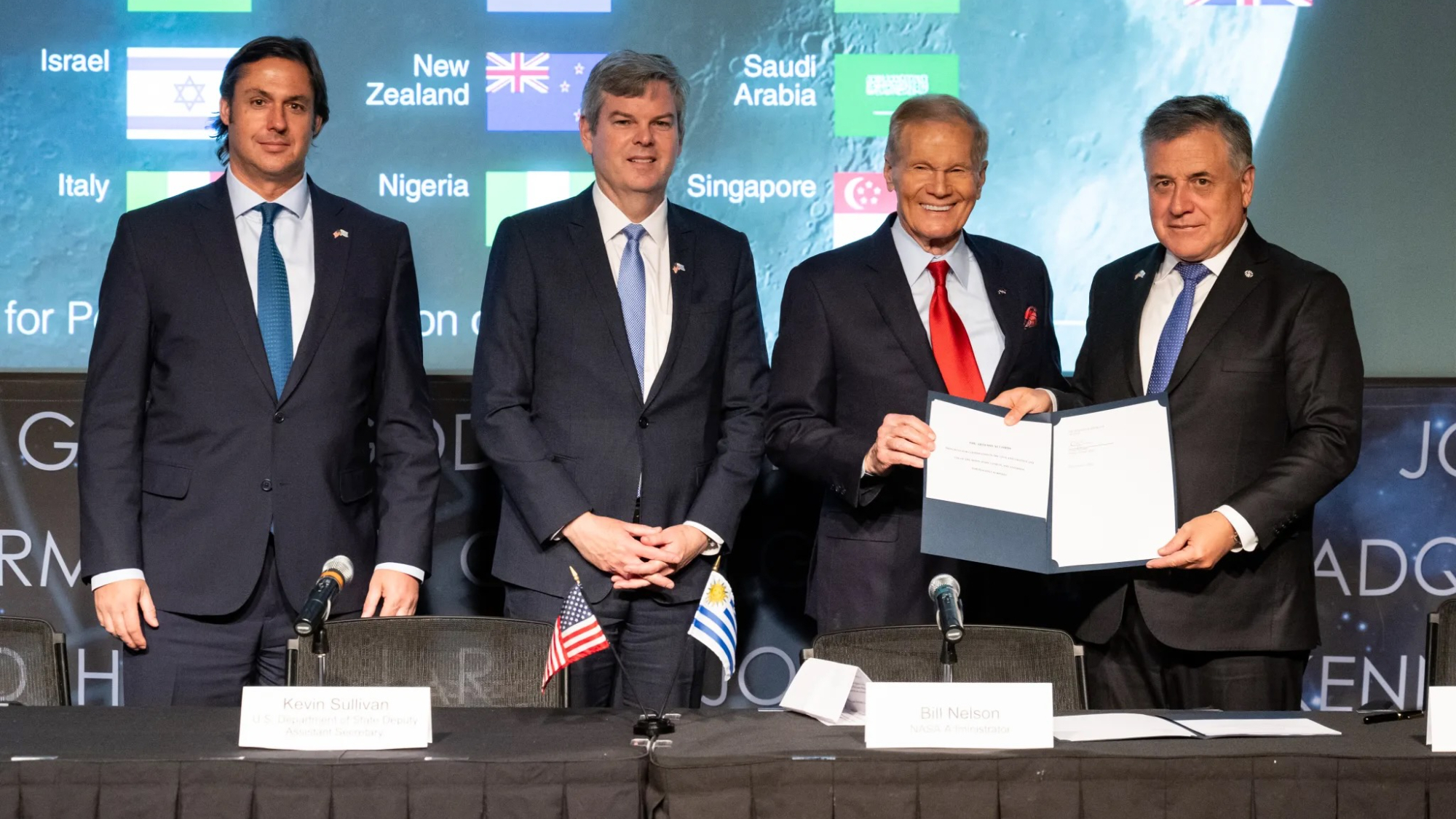Uruguay signs Artemis Accords for responsible space exploration
The South American nation becomes the 36th to sign the U.S.-led Accords.

Uruguay has joined the United States' effort to establish widespread principles to guide space exploration.
Uruguay's foreign minister Omar Paganini signed the Artemis Accords on behalf of the South American country during the annual U.S.-Uruguay bilateral inter-ministerial dialogue on Feb. 15 in Washington, D.C. NASA Administrator Bill Nelson participated in the signing ceremony for the agency.
"NASA welcomes Uruguay as the newest member of the Artemis Accords family," Nelson said in a NASA statement. "The United States and Uruguay share a commitment to democracy and peace, and now, we expand these principles in the cosmos to commit to the safe and transparent exploration of space."
Related: What are the Artemis Accords?
The Accords set out principles for guiding peaceful and responsible exploration, most immediately for the NASA-led lunar Artemis program. Uruguay's signing of the Accords follows just a week after Greece became the 35th country to join.
"We are honored to have the opportunity to introduce space cooperation as a new chapter in the robust bilateral agenda between Uruguay and the U.S.," said Paganini. "We are sure that this signing ceremony is not an end in itself, but the beginning of a new bilateral track based on knowledge-intensive activities and new opportunities for our people."
Uruguay's space endeavors are modest compared with those of major spacefaring nations. The country has just one satellite in orbit — the 2-unit cubesat AntelSat, launched in 2014 — but the signing indicates a willingness to deepen its involvement in space. The country moved to begin establishing a national space agency in 2021.
Breaking space news, the latest updates on rocket launches, skywatching events and more!
The Artemis Accords builds upon the principles set out by the 1967 Outer Space Treaty, according to NASA, and strengthens best practices such as the public release of scientific data.
The United States established the Artemis Accords in 2020. Uruguay joins fellow South American signatories Argentina, Brazil, Colombia and Ecuador. The Accords are represented on six of the world's seven continents.
Major signatories include Canada, France, Germany, India, Italy, Japan, South Korea, Saudi Arabia, Spain and the United Kingdom.
China, meanwhile, is leading an alternative lunar exploration project named the International Lunar Research Station (ILRS). So far Azerbaijan, Belarus, Egypt, Pakistan, Russia, South Africa and Venezuela have signed up to help establish the initially robotic ILRS in the 2030s.

Andrew is a freelance space journalist with a focus on reporting on China's rapidly growing space sector. He began writing for Space.com in 2019 and writes for SpaceNews, IEEE Spectrum, National Geographic, Sky & Telescope, New Scientist and others. Andrew first caught the space bug when, as a youngster, he saw Voyager images of other worlds in our solar system for the first time. Away from space, Andrew enjoys trail running in the forests of Finland. You can follow him on Twitter @AJ_FI.
